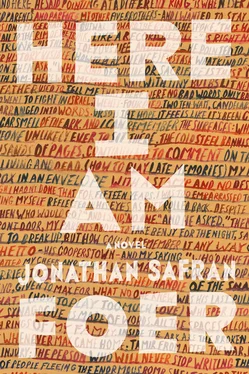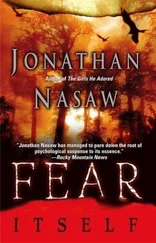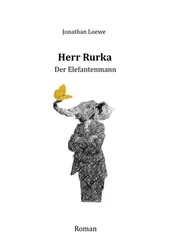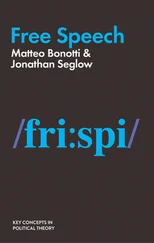> The dinosaurs.
> My parents never kissed, and fucked exactly once.
> Life crawling out of the ocean.
> notein haTorah.
> And if it were lined up straight, you could look at yourself not being there.
> Giver of the Torah.
Samanta looked up.
What on earth would it take for a fundamentally good human being to be seen? Not noticed, but seen. Not appreciated, not cherished, not even loved. But fully seen.
She looked out upon the congregation of avatars. They were trustworthy, generous, fundamentally nice unreal people. The most fundamentally nice people she would ever meet were people she would never meet.
She looked simultaneously at and through the stained-glass Jewish Present.
Sam had overheard every word from the other side of Rabbi Singer’s door. He knew that his father believed him, and that his mother didn’t. He knew that his mother was trying to do what she thought was best, and that his father was trying to do what he thought was best. But best for whom?
He’d found the phone a full day before his mother had.
Many apologies were due, but he didn’t owe any apology to anyone.
With no throat to clear, Samanta began to speak, to say what needed to be said.
The older one gets, the harder it is to account for time. Children ask: “Are we there yet?” Adults: “How did we get here so quickly?”
Somehow, it was late. Somehow, the hours had gone somewhere. Irv and Deborah had gone home. The boys had eaten an early dinner, taken an early bath. Jacob and Julia had managed to collaborate in avoidance: You walk Argus, while I help Max with his math, while you fold laundry, while I search for the Lego piece on which everything depends, while you pretend to know how to fix a running toilet, and somehow, the day that began as Julia’s to have to herself ended with Jacob ostensibly out at drinks with someone-or-other from HBO and Julia definitively cleaning up the day’s mess. So much mess made by so few people in such little time. She was doing the dishes when Jacob entered the kitchen.
“That went later than I thought,” he said preemptively. And to further compact his guilt: “Very boring.”
“You must be drunk.”
“No.”
“How do you have drinks for four hours without getting drunk?”
“Just a drink,” he said, draping his jacket over the counter stool, “not drinks. And only three-and-a-half.”
“That’s some awfully slow sipping.” Her tone was pointed, but it could have been sharpened by a number of things: her lost day off, the stress from the morning, the bar mitzvah.
She wiped her brow with the first part of her forearm that wasn’t soapy, and said, “We were supposed to talk to Sam.”
Good, Jacob thought. Of the conflicts available, this was the least terrifying. He could apologize, make it right, get back to happiness.
“I know,” he said, tasting the alcohol on his teeth.
“You say ‘I know,’ and yet it’s night and we’re not talking to him.”
“I just walked in. I was going to have a glass of water and then go talk to him.”
“And the plan was to talk to him together.”
“Well, I can spare you from having to be bad cop.”
“Spare him from having a bad cop, you mean.”
“I’ll be both cops.”
“No, you’ll be a paramedic.”
“I don’t know what that means.”
“You’ll apologize for having to correct him in any way, and the two of you will end up laughing, and I’ll be left as the annoying, nitpicking mother again. You get your seven-minute wink, and I get a month of resentment.”
“None of what you just said is true.”
“Right.”
She scrubbed at the charred residue on a burnt pan.
“Max is asleep?” he asked, aiming his lips at hers and his eyes to the side.
“It’s ten thirty .”
“Sam’s in his room?”
“One drink for four hours?”
“Three and a half. Someone else showed up halfway through, and it just—”
“Yes, Sam is up in his emotional bomb shelter.”
“Playing Other Life?”
“Living it.”
They’d grown so afraid of not having the kids to fill the void. Sometimes Julia wondered if she let them stay up only to protect herself against the quiet, if she called Benjy onto her lap to be a human shield.
“How was Max’s night?”
“He’s depressed.”
“Depressed? No he’s not.”
“You’re right. He must just have mono.”
“He’s only eleven. ”
“He’s only ten .”
“ Depressed is a strong word.”
“It does a good job of describing a strong experience.”
“And Benjy?” Jacob asked while looking through a drawer.
“Missing something?”
“What?”
“You’re searching around.”
“I’ll go give Benjy a kiss.”
“You’ll wake him up.”
“I’ll be a ninja.”
“It took him an hour to fall asleep.”
“Literally an hour? Or it felt like an hour?”
“Literally sixty minutes thinking about death.”
“He’s an amazing kid.”
“Because he’s obsessed with dying?”
“Because he’s sensitive.”
Jacob looked through the mail while Julia filled the washer: Restoration Hardware’s monthly Yellow Pages of gray furniture, the ACLU’s weekly infringement of privacy, a never-to-be-opened financial appeal from Georgetown Day, a flyer from some broker with orthodontics broadcasting how much he just sold the neighbor’s house for, various paper confirmations of paperless utilities payments, a catalog from a children’s clothing manufacturer whose marketing algorithm wasn’t sophisticated enough to realize that toddlerhood is a temporary state.
Julia held up the phone.
Jacob held up his body, although everything inside fell — like one of those bottom-weighted inflatable clowns that keep coming back for more punches.
“Do you know whose this is?”
“It’s mine,” he said, taking it. “I got a new one.”
“When?”
“A few weeks ago.”
“Why?”
“Because … people get new phones.”
She put too much soap in the machine and closed it too firmly.
“There’s a password on it.”
“Yeah.”
“Your old phone didn’t have a password.”
“Yes it did.”
“No it didn’t.”
“How do you know?”
“Because why wouldn’t I?”
“I guess so.”
“Is there something you need to tell me?”
Jacob was busted for plagiarism in college. This was before computer programs that could search for it, so getting caught required flamboyant stealing, which his was. But he wasn’t caught; he accidentally confessed. He’d been called into his “American Epic” professor’s office, asked to take a seat, made to ferment in the halitosis while waiting for the professor to finish reading the last three pages of a book and then clumsily shuffle through papers on his desk in search of Jacob’s work.
“Mr. Bloch.”
Was that a statement? A confirmation that he had the right guy?
“Yes?”
“Mr. Bloch”—shaking the pages like a lulav—“where do these ideas come from?”
But before the professor was given a chance to say, “Because they’re sophisticated far beyond your years,” Jacob said, “Harold Bloom.”
Despite his failing grade, and despite the academic probation, he was grateful to have made the blunder — not because honesty was so important to him in this case, but because there was nothing he hated more than exposed guilt. It made a terrified child out of him, and he would do anything to relieve it.
“New phones ask for a password,” Jacob said. “I think they require one.”
Читать дальше












